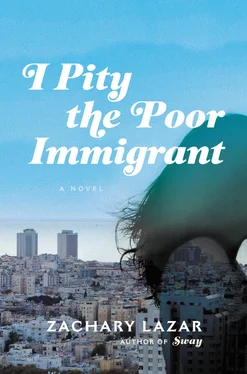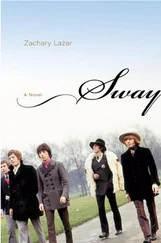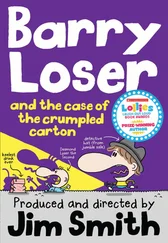Another war broke out — on Yom Kippur, Egypt and Syria attacked from the west and the north, in Sinai and the Golan Heights. It meant long weeks of sitting in the TV light, warming soup or just tea, bathing her mother, skeletal and bruised. The city would disappear, the country would disappear, bodies amid the shredded cars and buildings. She wanted to leave, to move to New York, but her mother kept living and so for a long time she forgot about her ambitions and her plans.
The war ended. She read that in Miami, Meyer had been acquitted of all charges: contempt, conspiracy, tax evasion. She felt certain now that it was not because he was innocent but because his life had been lived so invisibly. No one knew who he was, neither had she. Every once in a while she went back to the apartment to see that it was still there, still waiting for her. Three empty rooms with marks on the bare white walls from where the furniture had stood, where the pictures had hung. Broken slats in the closet door. The water in the kitchen sink would sputter out brown until it ran clear. Such a strange, unwanted gift, as if he were finally telling her something crucial. The future will not be much different from now. Tsilya. Gila. Look at the odds.
3 Only Connect NEW YORK, 2012
A memoir without a self. A memoir about someone other than “me.” An understanding that the story of other people connected to “me” might communicate more than the usual “me,” might show the cultural context of “me,” might even cast doubt on the viability of “me.”
I remember being in Florida to cover a murder case you may have heard about because it involves the infamous lobbyist Jack Abramoff. The case had been tied up in court since 2005. When it went to trial, Abramoff was not expected to appear, though he had of course been convicted of other crimes for which he’d served forty-three months in federal prison. He’d appeared at his previous trial in a dark trench coat and fedora, like a gangster from decades ago. In news stories, he was sometimes likened to Meyer Lansky.
When Gila first told me her story in the spring of 2010, I knew almost nothing about Meyer Lansky and wasn’t very interested in him or in the lore surrounding him. It was the women in his life, starting with Gila, that made me interested.
From the New York Times, June of 1995:
Hannah M. Groff, daughter of Lawrence H. Groff, of New York, NY, is to be married today to John V. Haynes, the son of Dr. and Mrs. Donald Haynes, of East Hampton, NY. The civil ceremony will take place at the Hayneses’ home in East Hampton with a reception to follow.
Ms. Groff, 25, is a recent graduate of the journalism school at Columbia University. Mr. Haynes, 28, is a litigation associate at Byrons and Company, a New York law firm.
I remember when I was young, hearing a song called “The Adultress,” about a woman, like Gila, who loses herself in secrets. The singer, Chrissie Hynde, seemed like the kind of woman I might be someday, the kind of woman I thought I wanted to be someday — the song seemed autobiographical. Later, when I became something like that kind of woman, I had long since forgotten the model for the role I was playing, though by then it might have occurred to me that the song was less a boast than an indictment. The song had come out the year I first met Gila, 1981, though I didn’t hear it until much later. I had mostly forgotten Gila by then. I had forgotten how much she’d meant to me when I was young, though some shadow of her must have always been there.
Nathanael West writes: It is hard to laugh at the need for beauty and romance, no matter how tasteless, even horrible, the results of that need are. But it is easy to sigh.
Frankie Lymon asks, Why do fools fall in love?
homen. a place of residence or refuge, as in the Promised Land, Tomorrowland, Never Never Land.
I’ll tell you one more story about the women in Meyer Lansky’s life before I tell you about myself. One more story about a woman who loses herself in secrets.
4 Immigrants, Part 1 NEW YORK, 1928–29
I
She touched up her lipstick in the powder room mirror, a girl who’d sewn her own dress from a Butterick pattern, a blue shift she wore with a brooch of fake pearls — Anne Citron, formerly Anna — the name change a hopeful step away from the past, a step toward here, the Park Central Hotel. The beige light settled behind her on a grouping of cane chairs on a pale carpet. Her face in the mirror seemed too long, the curves Semitic. The longer she stood taking in the room’s stillness, the more haughty and derisive it became.
She left the nickel Meyer had given her in the attendant’s basket and went back into the dining room. At her place on the table was a small velvet box. The whole night so far had felt illicit — American, unfamiliar, not Jewish. Now he was giving her a ring, as in the movies.
She looked at him and his eyes changed and she looked back down, trying to smile, imagining the way it ought to appear. He prodded her to open the box. She didn’t know whether to sit or keep standing, so she sat clumsily back in the chair. The ring’s small size surprised her — the smallness made it less dreamlike. It was a round crystal set in what she imagined at first was silver. Only gradually did she understand that it wasn’t silver and it wasn’t a crystal.
He looked at her with his mouth parted, eyes mistrusting. She was worried now in a way that was almost superstitious.
“Is it paste or is it real?” she asked.
“That’s a diamond.”
“Meyer.”
“That’s a real diamond.”
There was something flummoxed about how he adjusted himself in his chair. “I shouldn’t have surprised you like that.”
He had reached across the table and taken back the box. He snapped it closed with a quiet movement of his index finger, then secreted it away in the lower pocket of his jacket.
“Does it mean what I think it means?” she asked.
“That’s a real diamond. You think about it for a couple days, then you tell me what you think it means.”
On the table between them were stemmed glasses, white dishes, silverware arrayed on the white cloth — whiteness and high spaces full of air. He wished she would sit up straighter, not be so dour and scared. The waiter brought over two cut-glass dishes filled with diced melon and pineapple — fruit cocktails, they were called. It was Prohibition, so there was no wine.
“I heard you drove all the way to Florida,” she said later in the backseat of the dark car. They were in a garage on Cannon Street that he and Ben Siegel owned, among a fleet of other cars that he and Ben owned.
“I never drove to Florida,” he said.
“Were there storks there?”
“Who told you that?”
“Not storks, pelicans. Flamingos.”
“I never drove to Florida. I never drove anywhere near that far.”
He felt the neckline of her dress against his wrists, her face in his hands, the length and fineness of her hair. She was warm on top of the opened coat. He had worried at first that it would be strange that she was taller than he was, but instead there was a sense of abundance. He kissed her and moved his hands toward her breasts and she pushed them away, over and over, as slow and repetitive as the waves on a lake.
The crowd filed out and they stayed seated, the soft light on the theater’s Moorish columns, her hand on his coat sleeve. The movie’s spell was tenuous and she knew it, and she wanted it to last longer. It had been a college movie: an America of football, a dog rolling on the grass, a blond boy with a row of white teeth scoring the winning touchdown, his cheering friends in V-neck sweaters and ties. The lightest froth, so silly and glowing that the actors spoofed themselves, opening their eyes a little too wide at the camera, screwing up their smiles with a devious slant, but she could see by looking at Meyer in the dark that he didn’t scoff, that he’d been infected by it. Donald Keith, aroused by girls but unable to articulate anything; Clara Bow, “The Hot Potato,” a wild girl with a dark bob and teasing eyes. You watched the callow boy grow into his infatuation and the girl echo each of his changes with her own. If there’s a moon tonight, do you want to take a walk? Moonlight indicated by a blue filter, daylight in sepia. The lovers went to a speakeasy with checkered tablecloths, the hall jammed to the rafters with dancing couples, a funny old black woman flipping pancakes on a griddle, stealing a bottle of gin when the cops raided. A college movie—“Prescott College.” The sadness of graduation. How Donald Keith had changed so much in his four undergraduate years, from an awkward boy to a hale, confident man. He slapped down some cad who tried to kiss Clara Bow against her wishes, and in this way, as well as in his awkwardness, Donald Keith was like Meyer.
Читать дальше












